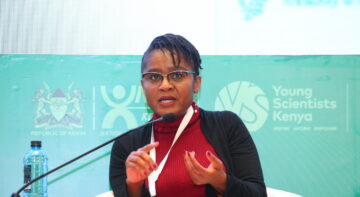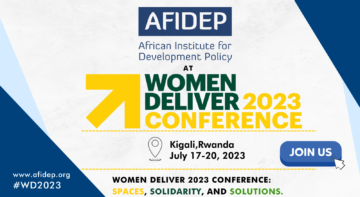News

Different stakeholders in population and development are working tirelessly to ensure countries achieve the sustainable development goals (Agenda 2030). For instance, on 11th May 2017, the United Nations Children’s Fund (UNICEF) is hosting a seminar on the demographic dividend in New York. Representing AFIDEP at the forum is Eunice Mueni, Knowledge Translation Officer.
As part of its sustainability and policy action work, UNICEF is taking cognisance of the need to understand demographic trends as an essential component of achieving sustainable development. UNICEF’s Generation 2030 project has underlined the importance of investing in children and youth by analysing key demographic trends and transitions by region, while also investigating key policy areas, which are intrinsically linked to how these populations change in structure and size over time. In order to take move this work to the next level, UNICEF and stakeholders are seeking to generate a broader evidence base in order to inform what investments are needed in various sectors so that harnessing the demographic dividend and achieving sustainable development can be a reality.
The second phase of the project, Generation 2030 Africa, seeks to establish at what stage each of the African countries is with regards to creating an enabling environment for the harnessing of a demographic dividend. The project also seeks to identify the level of investment needed to make this happen, with particular focus on human capital.
The seminar therefore presents an opportunity for stakeholders to explore the potential of providing a stronger evidence-based argument to foster investments in children and youth in order to realise national and regional demographic dividends. Participants at the forum include economists from international agencies, academia, and the private sector.
Related Posts





